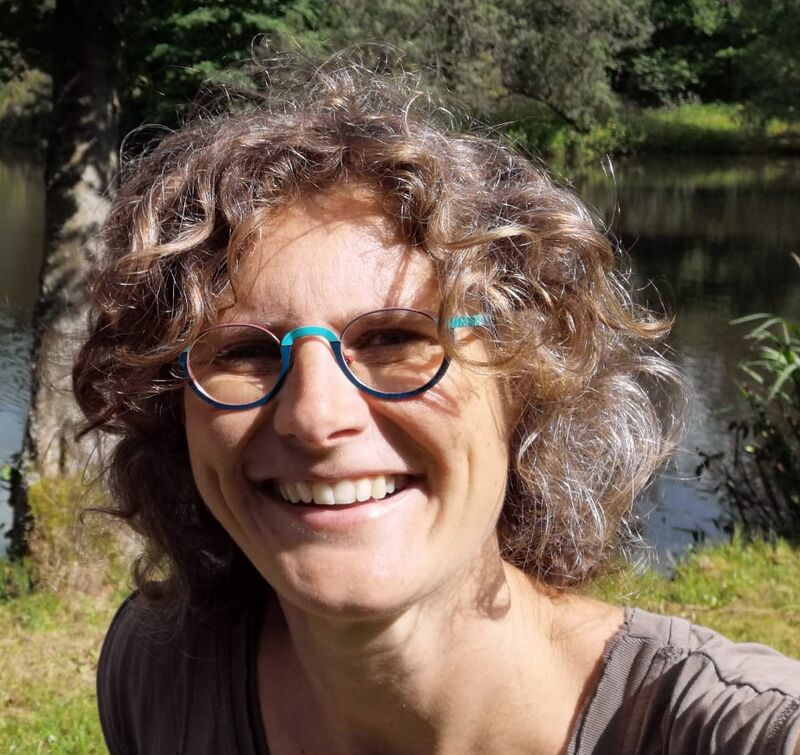Geen bewerkingssamenvatting |
Geen bewerkingssamenvatting |
||
| Regel 10: | Regel 10: | ||
Naast haar baan bij HZ, werkt Mireille bij een Belgisch bedrijf dat wetlands aanlegt en ontwerpt. Ook hier is ze vnl bezig met onderzoeksprojecten zoals het Horizon 2020 project Multi Source waar hergebruik van gezuiverd afvalwater wordt onderzocht op een camping. Een ander voorbeeld is het H2pOwer project gesubsidieerd door de Vlaamse overheid met als doel om extra waterzuivering te realiseren via een oeverplantendak dat wordt gevoed met gezuiverd afvalwater - door een wetland - van een kantoorgebouw. | Naast haar baan bij HZ, werkt Mireille bij een Belgisch bedrijf dat wetlands aanlegt en ontwerpt. Ook hier is ze vnl bezig met onderzoeksprojecten zoals het Horizon 2020 project Multi Source waar hergebruik van gezuiverd afvalwater wordt onderzocht op een camping. Een ander voorbeeld is het H2pOwer project gesubsidieerd door de Vlaamse overheid met als doel om extra waterzuivering te realiseren via een oeverplantendak dat wordt gevoed met gezuiverd afvalwater - door een wetland - van een kantoorgebouw. | ||
Trefwoorden: aangelegde wetlands voor de behandeling van industrieel, landbouw- en huishoudelijk afvalwater en oppervlaktewater/afvloeiing; proefprojecten, grootschalige projecten | |||
|ProfiletextEn=Mireille Martens obtained a Bachelor's degree in Psychology in Belgium, studied Aquatic Ecotechnology at HZ University of Applied Science in the Netherlands and holds a Master's degree in Environmental Science from the University of Halmstad (Sweden), where she specialized in wetlands. | |ProfiletextEn=Mireille Martens obtained a Bachelor's degree in Psychology in Belgium, studied Aquatic Ecotechnology at HZ University of Applied Science in the Netherlands and holds a Master's degree in Environmental Science from the University of Halmstad (Sweden), where she specialized in wetlands. | ||
She started at HZ as a researcher-lecturer. From 2019 to 2021 she worked as project leader of the TKI wetland project investigating whether wetlands can be used as a pre-treatment to reduce the amount of biofouling in a desalination plant (e.g. Ion Exchange and Reverse Osmosis). She is currently researching how the cities of Middelburg and Vlissingen can be made more climate-adaptive (Dutch grant OP Zuid) with focus on improving water quality in urban environments through blue-green solutions. In addition, as project leader she is responsible for work package 4 of Aquatuur Interreg Flanders The Netherlands. This project investigates to what extent wetlands can contribute to freshwater availability in a water-scarce region. | She started at HZ as a researcher-lecturer. From 2019 to 2021 she worked as project leader of the TKI wetland project investigating whether wetlands can be used as a pre-treatment to reduce the amount of biofouling in a desalination plant (e.g. Ion Exchange and Reverse Osmosis). She is currently researching how the cities of Middelburg and Vlissingen can be made more climate-adaptive (Dutch grant OP Zuid) with focus on improving water quality in urban environments through blue-green solutions. In addition, as project leader she is responsible for work package 4 of Aquatuur Interreg Flanders The Netherlands. This project investigates to what extent wetlands can contribute to freshwater availability in a water-scarce region. | ||

